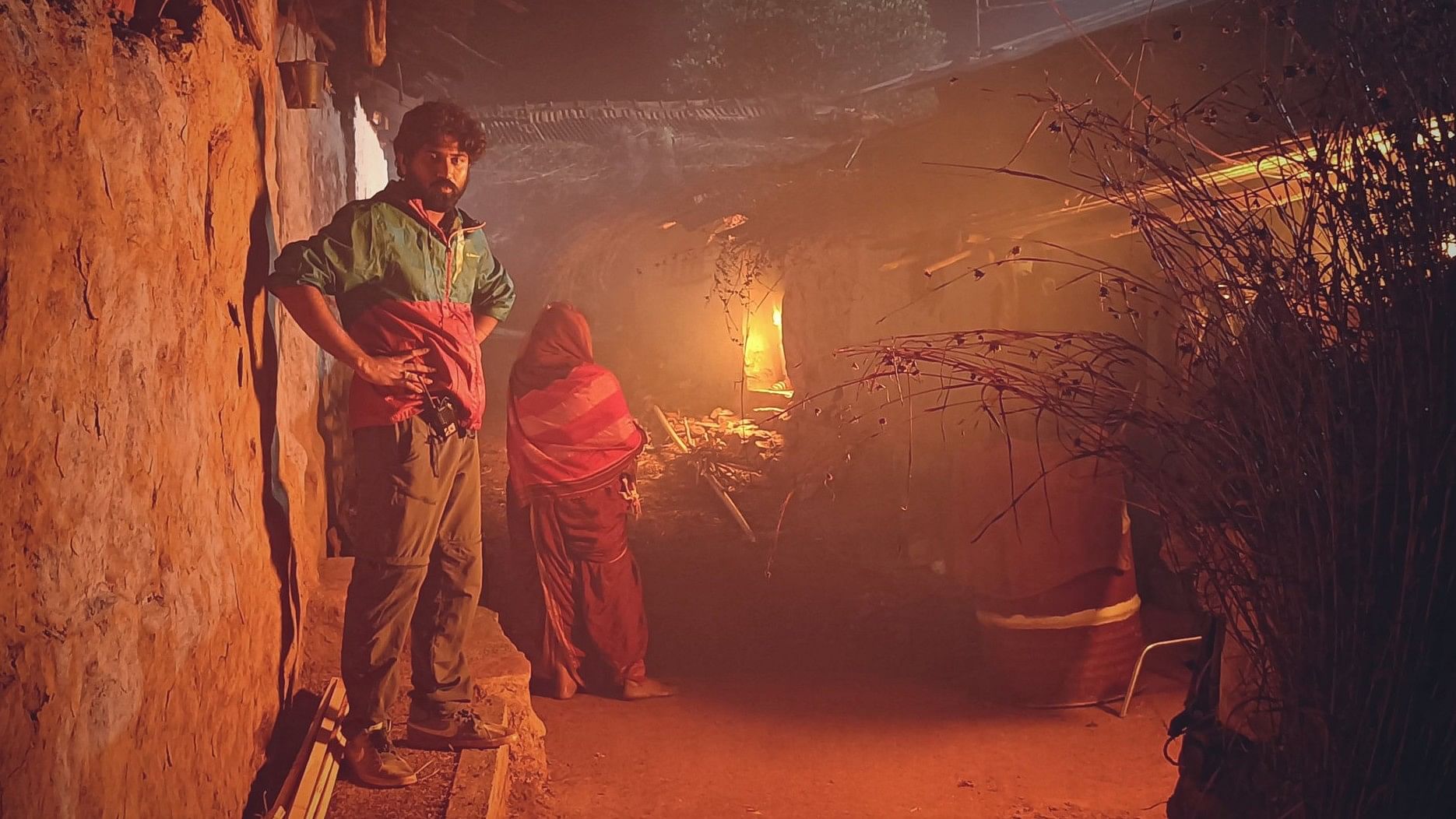
Director Chidananda S Naik on the sets of Sunflower Were the First Ones to know
Credit: X/@Chidanandasnaik
Cannes: Film and Television Institute of India (FTII) student Chidananda S Naik’s 16-minute short fiction film, Sunflowers Were the First Ones to Know..., premiered at the 77th Cannes Film Festival on Tuesday afternoon.
The Kannada-language film, based on a folk tale about an old woman whose theft of a rooster plunges her village into perpetual darkness, is in the La Cinef competition for film schools.
The awards for the section are scheduled to be announced on Thursday.
'Sunflowers Were the Last Ones to Know...' is one of 18 titles that will be judged by a five-member jury chaired by Belgian actress Lubna Azabal.
Shivamogga-born, Mysore-based Naik is in Cannes with three principal crew members – director of photography Suraj Thakur, sound designer Abhishek Kadam and production designer Pranav Khot.
The film’s editor, Manoj V, has not been able to make it to the festival.
The team has travelled to the festival at their own expense.
Naik has an MBBS degree. He gravitated towards filmmaking after practising medicine for a while. “My parents were extremely upset with me when I made the move. But now, five years on, I am here with their support,” he says.
The film was shot on location in Pune. Because it is about a village where the sun stops rising, 'Sunflowers Were the First Ones to Know...' had to be shot in darkness.
“Night is a character in the film,” says Naik. “It was a challenge considering the limited resources we had at our disposal.”
The story that Naik’s film tells is rooted in Karnataka. “It is very known within the state, so I am surprised that nobody outside Karnataka has ever heard the folk tale,” he says.
It was a conversation with the late writer UR Ananthamurthy that sparked Naik’s search for stories and songs of the Banjara community to which he belongs. “He told me that it isn’t a language that is recognised, it is the literature in that language.”
Based on his research into Banjara literature, Naik made a 12-minute documentary, 'Bhule Chuke Tules' (To the Forgotten). The film premiered at the International Documentary and Short Film Festival of Kerala last year.
“Banjaras have a rich oral culture but the lines separating the community from the Kannada-speaking population have blurred,” he says.
Naik grew up on a staple of commercial Kannada cinema. “I discovered Girish Kasaravalli and other non-mainstream filmmakers quite late,” he says. He enrolled for a one-year course in the television wing of FTII.
Naik now runs a club of writers with several other aspiring filmmakers.
“We call it Ashtray,” he says. “We develop projects. We write ideas and analyse them. We watch films, get their scripts and discuss them.”